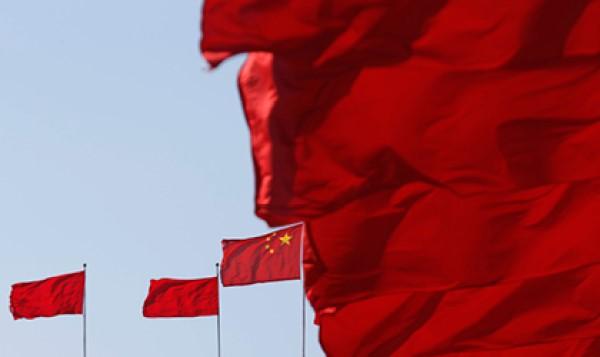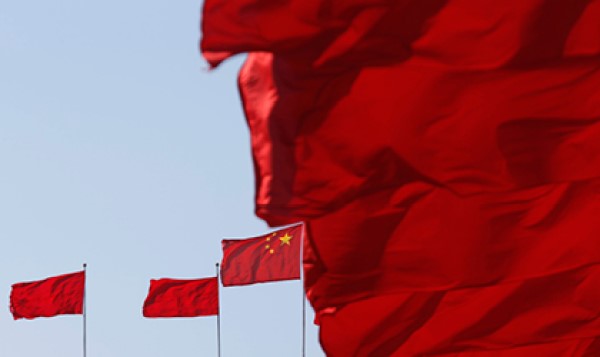
距离中国政府提出《粤港澳大湾区发展规划纲要》已近一年,近期深圳示范区的创立及科技创新目标的设定也进一步明确了大湾区的发展策略。在本专题中,我们对话了几位执业于大湾区的律所领导者,聊了聊律所如何调整在这一区域的布局及发展策略,律所又在哪些重点业务领域为大湾区客户提供服务。
ALB:贵所目前在大湾区布局了多少家分支机构?它们的规模、业务情况如何?是如何协作的?
方达律师事务所合伙人张辉律师:方达目前在大湾区布局了三个办公室。首先是香港办公室,常驻的有21名合伙人,是在香港本地市场非常活跃的律所;其次是深圳办公室,有10名合伙人;最后是广州办公室,目前有3名合伙人。
每个办公室都有不同的业务特点。香港业务首先发力于香港本地争议解决;第二个很有特色的是“一带一路”沿线的争议解决;第三个至关重要的,就是香港的资本市场业务;第四个则是债券发行等债券资本市场和金融业务。深圳办公室目前业务集中在国内资本市场业务、收购兼并业务、外商直接投资业务、争议解决业务和知识产权。广州目前有两位合伙人做商事争议。广州办公室也有破产管理人资格,此外还有互联网知识产权。
现在我们在把这三个办公室整合为“湾区办公室”,有一位牵头香港、广州和深圳三地业务融合和开拓的管理合伙人Colin Law。我们湾区办公室的公司业务组还做了“启航计划”,即通过一个统一的实习计划培训从事跨境法律服务的人才。这些实习生虽然工作地点在深圳,但由国内和香港合伙人同时提供境内法律和部分普通法的培训,未来录用后,他们就能成为我们湾区团队的中坚力量,为湾区的客户提供跨境法律服务。
广信君达律师事务所高级合伙人苏东海律师:我们所布局在大湾区的有广州总部,以及深圳、珠海、中山、东莞、佛山分所,在广州又采用了1+3模式:总部加白云、南沙和花都三家分所;在深圳和珠海采取了1+1模式:深圳+ 前海,珠海+横琴。我们还和江门、惠州、肇庆的同行或政府建立了紧密联动,实现了深度布局。江门是侨乡,海外资源丰富,随着内地开放不断深入,归侨会增加对内地投资,目前这里传统型业务比较多,比如旧城改造、房地产开发、日常法律顾问等。
通商律师事务所合伙人刘问律师:通商在深圳有一家分所,发展速度很快, 并且很快会有新合伙人加入,希望在未来一两年之内把它扩充到100人左右。2018年我们也刚刚开设了香港分所,一年之内已经扩充到了16个人,其中包括三个合伙人。深圳分所的主要业务是香港资本市场和A股资本市场,同时在发展争议解决和合规业务,香港主要是传统的IPO业务和上市后的合规业务。
说到协同,其实关涉香港办公室和整个内地通商办公室之间的协同,目前我们北京、上海和深圳的很多业务要和香港合作,未来希望也会有反哺:香港那边拓展出来的业务会反过来寻求其他地方的合作。
竞天公诚律师事务所管委会合伙人郎元鹏律师:竞天公诚在大湾区有深圳办公室,在香港独立设立分所,并积极筹办广州分所(预计12月底开业),预计届时竞天公诚将在大湾区拥有100位合伙人、律师的队伍,在原来的金融、证券、公司、投资并购、争议解决等传统领域的基础上,积极引入海事海商、建设工程、争议解决、一带一路等等业务领域的合伙人,并依托北京、上海办公室优秀的律师团队,形成境内外联动的协调作战能力,能够有效地服务大湾区的客户,目前业务发展迅速。
ALB:《粤港澳大湾区发展规划纲要》提出已近一年,大湾区的建设给律所带来了哪些发展机遇?贵所在大湾区所设定的整体发展策略是什么?
张辉:《纲要》对大湾区内包括深圳、广州、香港、澳门等城市都提出了规划定位,但基于一国两制的制度框架,预计《纲要》在内地城市实施起来会更有效。具体到为律所带来的机遇,因为内地、香港、澳门分别有各自的法律体系,对律师而言,如何在大湾区中将不同法律体系做好融合,这构成了新机遇。
其他一些具体机遇还包括开办分所,几乎所有国内头部律所都在香港设立了分所。这个趋势也是双向的,香港本地律所现在也可以和大湾区包括的9个广东省城市的律所进行联营。
苏东海:粤港澳大湾区发展规划作为国家战略,引发了法律服务市场的根本变化。首先体现在三地的法律服务联系更紧密,法律服务机构交往更密切。其次,随着三地经济交流更密切,产生了越来越需要探讨的法律适用问题,比如说港人港税、婚姻、财产、贸易问题等,从而推动三地的法律服务机构对业务战略方向进行调整。
我们的合伙人和管理层学习和了解了《发展规划》。我们建立了粤港澳大湾区促进委员会,未来在推动战略布局、联动各方沟通、业务规划、人才引进方面都会有些动作。
刘问:这是一个全方位的法律服务机遇。大湾区的首要目标是建立创新支撑的经济体系,以及促进三地的协同发展。创新一定会在知识产权、企业、劳动就业等领域带来机会;就协同发展来说,区域内人、财、物的流动一定会带来外汇、资本市场、投资并购、私募等方面的新机会。
但在其中我们特别看重几点:其一是最近坐落在深圳的中兴和华为都面临了很大的合规风险,所以我们希望在这方面做些布局;其二,我们希望在未来的执业中更多、更主动地贴近企业;第三我们希望加强商事仲裁业务,尤其深圳现在设立了国际仲裁院。
郎元鹏:“大湾区发展战略”作为国家层面的战略,具有重大的意义和重大的影响。一方面是当地经济带的整合和重新布局、基础设施的投资、建设,另外一方面会吸引全国乃至全世界的优秀人才到大湾区创业发展,优秀的企业去大湾区投资、发展。这必然会对法律服务带来巨大的需求,也对律所的服务能力提出了更大的挑战。
竞天公诚在“大湾区发展战略”公布之前,就注意到粤港澳经济带在中国的重要性,就开始布局大湾区的办公室和律师团队的建设,在原有深圳办公室的基础上,独立开设香港办公室,积极筹建广州办公室,确保具备国内和香港两边的法律服务能力,大量引进合伙人队伍,涵盖金融、证券、公司、投资并购、海事海商、建设工程、争议解决、一带一路等业务领域,确保全面服务大湾区境内外客户的法律能力。
ALB:贵所在大湾区的业务总量及业务类型发生了怎样的变化?大湾区客户对于哪些法律服务的需求量最大?
张辉:大湾区的客户对几种法律服务的需求量很大。一个是在深圳,它有非常强的高端制造业和高新技术企业,再加上中美贸易战的背景,对于知识产权,尤其是专利诉讼的需求量越来越大,而且还包括在境外的这类需求。第二个是破产重整。第三是在“一带一路”下,一些境内企业有了对外投资方面的业务,不过这主要集中在国企。资本市场这一块受到香港目前环境的影响,相对来说不是太活跃。
苏东海:我们在业务上着重于推动服务高科技企业和知识产权这两块。最近我们跟港澳台博士协会建立了联动,他们很关注高科技企业如何在内地获得更优惠的营商环境,以及知识产权能够得到何种保护。
我们在今年也为很多企业提供了资本市场服务,其中广州地铁发行以地铁收益权作为证券化ABS的项目是全国首单。广州本地企业融资思路的打开跟粤港澳大湾区的刺激有一定关系,他们的融资主体也不再限于内地。
刘问:2018年是香港资本市场的IPO大年,所以去年整个我们的业务增长量非常高,今年深圳分所这一块依然保持增长,主要因为人员在增长,还有些业务是去年留下来的,但这块预计明年会下降。但是我们的合规业务从零到有,今年增长到了几百万,未来可以和资本市场业务互补。
郎元鹏:过去一年,竞天公诚在大湾区的业务量得到了快速发展,明显高于其他地区。总体来讲,客户对金融、投资、一带一路、基础设施建设和跨境法律服务的需求明显提升;另外,随着深圳作为“科技、创新之都”的快速发展,在金融科技、信息科学、互联网、知识产权、企业合规等业务领域的法律服务需求明显增加。
ALB:大湾区的业务发展要求律师能力的不断进步。在您看到,从执业领域及其他技能来看,目前大湾区最需要怎样的律师?贵所未来在大湾区如何进行人才布局?
张辉:我们在重点领域的人才投入也是不断增加,比如知产诉讼、破产重整、资产重组。对人才的要求也有变化,比如说知识产权领域,大量涉及专利案件,同时涉及在美国或欧洲的诉讼,我们倾向于选择有相关技术背景的律师,最好本科学的是电子通信、新材料、医药生命科学等,然后又学了法律。这样的复合型人才才能更好给深圳的高端制造业、高新技术企业提供法律服务。苏东海:我们引进了一些熟悉港澳事务和涉外事务的律师,此外语言也很重要,希望能有更多懂粤语的律师加入。此外我们还推动了既有人才的理论研究能力,有位律师已经出版了一本研究粤港澳大湾区的书籍。
刘问:所有红圈所都需要英语好、有扎实法学院本科功底的人才。此外在做合规——尤其和美国长臂管辖及知识产权有关的业务时,特别需要有企业或者是技术背景的法律人才,因为这些创新领域往往会伸到一些律师理解不了的东西上。而企业对你服务是否到位的判断,和你对他的理解程度息息相关。我们于是引进了原来在大企业做合规的部门主管,未来我们想构建这样一个队伍,为更多创新型企业提供法律服务。
郎元鹏:不但需要经验丰富的跨境法律服务能力的国际法律专家,也需要精通金融科技、信息科学、互联网、知识产权、企业合规、一带一路等业务领域的法律专才。
ALB:在您看来,律所在大湾区的执业面临着哪些方面的挑战?
张辉:首先,内地律师面临着思想观念转变和业务能力提升的需要,不能眼光只盯着内地市场,要更多强调跨境交易能力、跨境争议解决能力,积累不同法系的知识和业务经验。当然香港律师也是一样,传统上香港律师可能也有自己的舒适区,现在面临着到内地来、和内地同事或工作伙伴合作的情况,这也牵涉到相互适应的问题。
外资所最近纷纷进入深圳是挑战,但也是非常积极的信号。其实不光是外资所,国内头部律所这两年都到深圳开了分所,说明大家都把深圳作为重要区域对待。深圳有中国第一流的制造企业,它们对法律服务的需求非常大,但是很多客户也觉得本地律所目前提供的法律服务和他们的实际业务发展需求尚有些距离。
苏东海:大湾区在人才多样性和业务领先性上非常突出,律所应该强调专业的领先,比如对证券资本市场的研究、对知识产权特别类型的研究、对高新科技风控的研究,琢磨出不一样的发展之路,研究得越深,肯定发展得越快。刘问:最大的挑战是来自同行的挑战,大家都看到了机会,所有红圈所都过来布局,未来我们能不能在其中占有一席之地,这很考验我们的管理和战略思维。怎么做得比别人更好一点,开拓新领域,抢人才……最大挑战是在这一轮 里不要输。
此外,深圳的TMT企业很多,许多发展到一定规模就吸引了很大的私募投资,而这些私募基金会带着自己的律师过来,所以也会面临这种跟大湾区以外律师的竞争。
郎元鹏:主要挑战集中在如下方面:1律师行业的整体发展没有北京、上海地区国际化,在行业发展规划和指导方面需要进一步提升;
2由于优质法律教育资源的缺乏,律师团队的继续教育和提升相对受限;
3客户对优质法律服务的认知不清晰,需要一定的时间去教育客户;
4金融、投资、会计、会计和知识产权机构相对较弱,整体协同效果较差;5可能会面对地方法律服务机构的低价服务等“恶性竞争”,短期内在所难免。
Managing Partner Roundtable: Greater Bay Area
It has been almost a year since China launched the Great Bay Area Initiative. With the setting up of Shenzhen as a pilot city and innovation as well as the establishment of digital technology goals, lawyers appear to have a better idea about how the area will evolve. In this roundtable, leaders of law firms in the GBA talk about their overall strategy, and also the types of services they’re providing for local clients.
ALB: How many branches do you currently have in the GBA? How do they cooperate?
DIXON ZHANG, partner at Fangda Partners: Fangda Partners currently has three offices in Hong Kong, Shenzhen and Guangzhou.
There are currently 21 partners at our Hong Kong office, while 10 partners are based in Shenzhen, and three are based in the relatively new Guangzhou office.
Established six years ago, Fangda’s Hong Kong branch specialises in local dispute resolution and the dispute resolution of BRI projects. More importantly, it also advises on capital market transactions and bond issuance.
These three offices are dubbed the “GBA offices” of Fangda and we have appointed a managing partner, Colin Law, to oversee coordination between offices.
SU DONGHAI, senior partner and managing partner at ETR Law Firm: We have quite an extensive presence in the GBA. ETR’s headquarters are in Guangzhou, and we also have offices in Shenzhen, Zhuhai, Zhongshan, Dongguan and Foshan.
We’ve also built good relationships with peers and local governments in Jiangmen, Huizhou and Zhaoqing. Jiangmen is the hometown of many overseas Chinese who are likely to make more investment in mainland China as the market opens up; it is necessary to consider that when doing business planning for the GBA.
LIU WEN, partner at Commerce & Finance Law Offices: Commerce & Finance’s Shenzhen branch has grown rapidly since its establishment in 2017. We started with 30 employees and are now at 50, but we hope to expand that to 100 in the next year or two. The Shenzhen office focuses on the H-share and A-share markets, as well as dispute resolution and compliance. In 2018, we opened a branch in Hong Kong with a focus on traditional IPO and post-listing compliance issues.
We seek synergy between Commerce & Finance’s Hong Kong office and all the other offices on the Mainland, not just Shenzhen. Although the firm is mulling over the establishment of more branches in the GBA, it has yet to decide on a sound strategic layout.
LANG YUANPENG, management committee partner at Jingtian & Gongcheng: Jingtian & Gongcheng has an office in Shenzhen, and an independent branch in Hong Kong. We are also in the middle of preparing for the opening of the Guangzhou branch which is scheduled at the end of December. It is expected that Jingtian & Gongcheng will have a team of 100 in the GBA by then. The firm has brought in partners specialised in maritime affairs, construction engineering and dispute resolution as an extension of the original business focuses of finance, securities, corporate and M&A.
ALB: It has been nearly a year since the Outline Development Plan for the GBA was released. What is your overall strategy for the GBA?
ZHANG: Although the plan outlined the positioning of all GBA cities, the implementation of the plan in mainland cities will be more effective due to the “one country, two systems” policy. The opportunities for law firms specifically, lie in the integration of different legal systems in the area.
There is also a trend of mainland law firms setting up practices in Hong Kong; they usually start as an alliance and then gradually turn into a sole proprietorship. This works both ways: Hong Kong law firms can also forge alliances with mainland firms in the GBA.
SU: The outline plan has triggered fundamental changes in the legal service market, which are firstly reflected in the closer links between legal services and legal institutions in the three places. Secondly, with more exchanges between the three jurisdictions, there are more issues about the application of law that will drive the strategic adjustment of the legal service institutions in the area. LIU: The GBA entails comprehensive opportunities for the legal services industry. The primary goal of the Greater Bay Area initiative is to establish an economic system supported by innovation and to promote the coordinated development of the three jurisdictions. In terms of innovation, there will be accompanying opportunities in fields such as intellectual property rights, corporate, labour and employment. In terms of coordinated development, the flow of people, capital and goods in the region will bring new opportunities in foreign exchange, capital markets, mergers and acquisitions, as well as private equity.
Commerce & Finance is particularly focused on compliance risks mitigation for companies like ZTE and Huawei; and is taking more initiative in catering to clients; and growing its arbitration business.
LANG: As a strategy at the national level, the GBA initiative is of great significance and great influence. On the one hand, it promotes the integration and redistribution of the local economic belt, as well as the investment and construction of infrastructure; on the other hand, it will attract outstanding talents from all over the country or even the world to the GBA. This brings both opportunities and challenges to the legal services market.
Before the outline plan was released, Jingtian & Gongcheng had recognised the region and established our Hong Kong branch while actively building offices in Guangzhou and Shenzhen to ensure that the legal services capabilities are balanced on both sides. We also recruited many partners who specialise in areas such as finance, securities, corporate, M&A, maritime affairs, construction, dispute resolution, the Belt and Road initiative (BRI) and so on.
ALB: How has your business volume and service type changed in the GBA? Which legal services are most in-demand in the GBA?
ZHANG: There is an increasing demand for intellectual property rights related services, especially patent litigation, in Shenzhen as it’s home to many major high-end manufacturing and high-tech enterprises against the backdrop of the trade dispute between China and the US. Insolvency reorganization is also in demand because of domestic deleveraging and changes in the economic environment. Also, under the BRI, some domestic enterprises have started up their foreign investment businesses. However, they are mainly state-owned enterprises, private enterprises are not that active in overseas investment. SU: We focus on high-tech enterprises and offering IP-related services. We have recently established a link with the Doctorate Association of Hong Kong, Macao and Taiwan, which is interested in creating a more favourable business environment in the Mainland for high-tech enterprises as well as IP protection. LIU: 2018 was the year of IPOs in Hong Kong’s capital market, so that side of our business experienced high growth last year. There may be a decline in demand in that area, but it will be offset by the growth in our compliance business, which has expanded significantly over the year.
LANG: In the past year, Jingtian & Gongcheng has had much higher business volume in the Greater Bay Area, it is also noticeably higher than in other regions. Generally speaking, clients’ demand for legal advice related to finance, investment, BRI, infrastructure construction and cross-border deals has increased significantly. In addition, with the rapid development of Shenzhen as a ‘capital of technology and innovation’, the demand for legal services in fintech, informatics, Internet, intellectual property rights, corporate compliance and other business areas has also increased significantly.
ALB: Business development in the GBA requires the continuous improvement of lawyers’ capabilities. What type of lawyers do you think are most needed in the GBA? What’s your plan for talent distribution in the region?
ZHANG: We continue to invest in talent specialised in areas such as IP rights, IP litigation, and asset reorganization. Our requirements for talent has also changed: we tend to choose lawyers with a relevant technical background – the best ones are those with a degree in another subject such as telecommunications, new mate-rials or life sciences on top of their law degree. Such versatile talents can better meet market demand and provide legal services for high-end manufacturing or high-tech enterprises in Shenzhen. SU: We have brought in lawyers who are familiar with Hong Kong and Macao affairs as well as foreign affairs. Additionally, we intend to recruit more lawyers who can speak Cantonese. We’re also training existing staff to perform better theoretical research – one of our lawyers has published a book studying the GBA.
LIU: Any lawyer with a good command of English and a solid foundation in law study is desirable. We’ve also discovered that legal talents with a corporate or technical background are especially needed for dealing with compliance issues because the client often judges the quality of your services based on your understanding of their business. So, we recruited a former head of compliance from an established company to build a team to provide legal services to more innovative enterprises.
LANG: We need not only international experts with rich experience in cross-border legal services, but also those who are proficient in fintech, informatics, internet, IP rights, corporate compliance, BRI and other business fields.
ALB: What are the challenges your firm faces in the GBA?
ZHANG: First of all, Mainland lawyers are faced with the need to change their mindset and professional proficiency, as they should place more emphasis on the ability to conduct cross-border transactions and resolve cross-border disputes, and accumulate knowledge and professional experience in both the civil law system and the common law system, to better serve clients in different jurisdictions. The same is also true for Hong Kong lawyers. They may need to get out of their comfort zone and come to work with Mainland colleagues, which involves the mutual adaptation of two cultures.
The recent influx of foreign firms into Shenzhen is a challenge, but it is also a very positive sign. In fact, not only foreign firms but also leading domestic firms have opened branches in Shenzhen in the past two years, which shows that everyone treats Shenzhen as an important market. Shenzhen has China’s first-class manufacturing enterprises that have significant demand for legal services, but many of them feel that the services provided by local law firms are not sufficient.
SU: Law firms should emphasize on professional leadership and in-depth research in areas such as capital market, special types of IP, risk control for hi-tech enterprises, to figure out a different path for growth.
LIU: The biggest challenge is fierce competition with peers. Everyone sees the opportunity, so it will be a test of our management and strategic thinking to earn a place in the market.
Also, there are many TMT enterprises in Shenzhen, which will attract many private equity funds are equipped with their team of lawyers, so we will also be competing with lawyers outside of the GBA.
LANG: There are several challenges: the legal services industry in the GBA is not as internationalised as those of Beijing and Shanghai, so there needs to be further planning and guidance for improvement; due to the lack of high-quality legal education resources, the continuing education and promotion for lawyers is relatively limited; clients need to be further educated about high-quality legal services; the synergy with financial, investment, accounting and IP institutions is relatively weak; and firms will face vicious competition from local firms, which is inevitable in the short term.
To contact the editorial team, please email ALBEditor@thomsonreuters.com.



